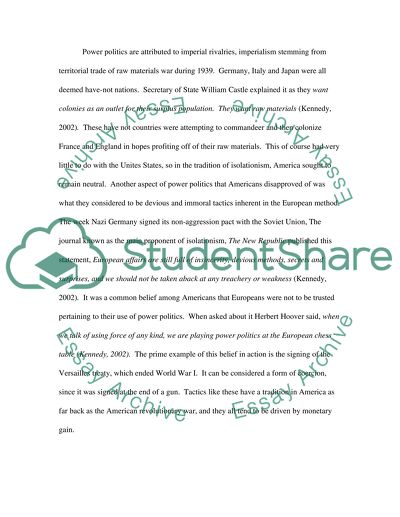Cite this document
(American Isolationism Policy Essay Example | Topics and Well Written Essays - 1750 words, n.d.)
American Isolationism Policy Essay Example | Topics and Well Written Essays - 1750 words. https://studentshare.org/politics/1508952-explain-why-american-support-for-britain-between-1939-41-stopped-short-of-war
American Isolationism Policy Essay Example | Topics and Well Written Essays - 1750 words. https://studentshare.org/politics/1508952-explain-why-american-support-for-britain-between-1939-41-stopped-short-of-war
(American Isolationism Policy Essay Example | Topics and Well Written Essays - 1750 Words)
American Isolationism Policy Essay Example | Topics and Well Written Essays - 1750 Words. https://studentshare.org/politics/1508952-explain-why-american-support-for-britain-between-1939-41-stopped-short-of-war.
American Isolationism Policy Essay Example | Topics and Well Written Essays - 1750 Words. https://studentshare.org/politics/1508952-explain-why-american-support-for-britain-between-1939-41-stopped-short-of-war.
“American Isolationism Policy Essay Example | Topics and Well Written Essays - 1750 Words”. https://studentshare.org/politics/1508952-explain-why-american-support-for-britain-between-1939-41-stopped-short-of-war.


